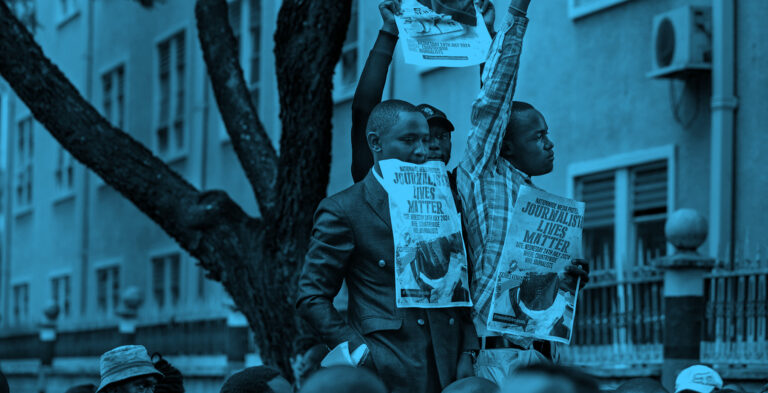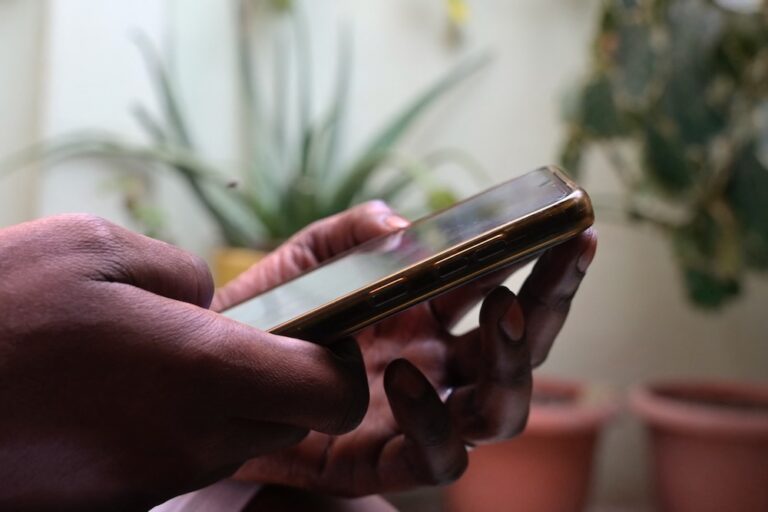More than 40 media organisations worldwide are demanding urgent action by governments, the UN, and the industry to stop violence against journalists and end impunity in attacks on the press.
(CPJ/IFEX) – October 23, 2012 – The following is a CPJ Blog post:
By Elisabeth Witchel/CPJ Impunity Campaign Consultant
More than 40 media organizations worldwide are demanding urgent action by governments, the United Nations, and the industry to stop violence against journalists and end impunity in attacks on the press. They made their position known in a joint statement delivered today to the U.N. Educational, Scientific, and Cultural Organization (UNESCO).
The call for action comes ahead of the 2nd U.N. Inter Agency meeting on Safety of Journalists and the Issue of Impunity, to take place November 22-23, in Vienna. There, implementation of the U.N. Plan of Action on the Safety of Journalists and the Issue of Impunity will be debated by U.N. agency representatives, member states, and civil society. Participants will also mark the second International Day to End Impunity on November 23.
With attacks against journalists consistently at unacceptable levels and nearly always unprosecuted, the Plan of Action represents an immense opportunity for the international community to mobilize on behalf of those whose reporting on war, corruption, human rights, and other issues serves as a keystone to the U.N.’s work. The plan proposes measures for U.N. agencies to improve coordination and develop programs to protect journalists and combat impunity in cases of anti-press violence. It was drafted by UNESCO and approved by the U.N. Chief Executive Board this year, after some debate among countries including India, Brazil, and Pakistan.
Signatories to today’s statement were briefed last week at a symposium at the BBC’s new London headquarters, hosted by the Centre for Freedom of the Media and the BBC College of Journalism and organized in partnership with the World Association of Newspapers (WAN-IFRA), the International Press Institute, CPJ, and International News Safety Institute.
Guy Berger, Director of Freedom of Expression and Media Development at UNESCO, called for active engagement by media outlets in the “potentially game-changing initiative” through reporting on attacks against journalists, making inquiries when a colleague is murdered, and monitoring the actions of governments and intergovernmental bodies.
Now, the challenge for UNESCO and other agencies is sustaining the commitment and following through on the plan’s implementation; freedom of expression groups must ensure that follow-up by agencies, as well as by member states.
CPJ, which has consulted on development of the U.N. plan, participated in the symposium and endorses the London statement.
African Editors Forum
Al Jazeera
Association of Commercial Television in Europe
BBC Global News
Blue Dot Safety Training
Brazilian Association of Investigative Journalism (ABRAJI)
Centre for Freedom of the Media, University of Sheffield
City University, London
CNN
Colombo Telegraph, Sri Lanka
Commonwealth Journalists Association
Commonwealth Media Group
Commonwealth Press Union Trust
Daily Telegraph, UK
Dawn Newspaper, Pakistan
European Broadcasting Union
Federation of African Journalists
Frontline Club, London
Global Rolling News Live
Globo, Brazil
The Guardian, UK
Hurriyet Newspaper, Turkey
International News Safety Institute
L Siglo de Torreon, Mexico
La Stampa Newspaper, Italy
Media Legal Defence Initiative
Philippines National Union of Journalists
Radio Netherlands Worldwide
Radio Free Europe/Radio Liberty
Rory Peck Trust
Sky News
Society of Editors, UK
Somali National Union of Journalists
Thomson Reuters
UNESCO IPDC Council – UK Representative Ivor Gaber
World Editors Forum
Signed in a personal capacity:
Dawood Azami, journalist and University of Westminster
Anabel Hernandez, Mexican journalist
Emin Milli, Azerbaijan writer
Hamid Mir, Geo TV presenter, Pakistan
Lorna Woods, Centre for Law Justice and Journalism, City University London


